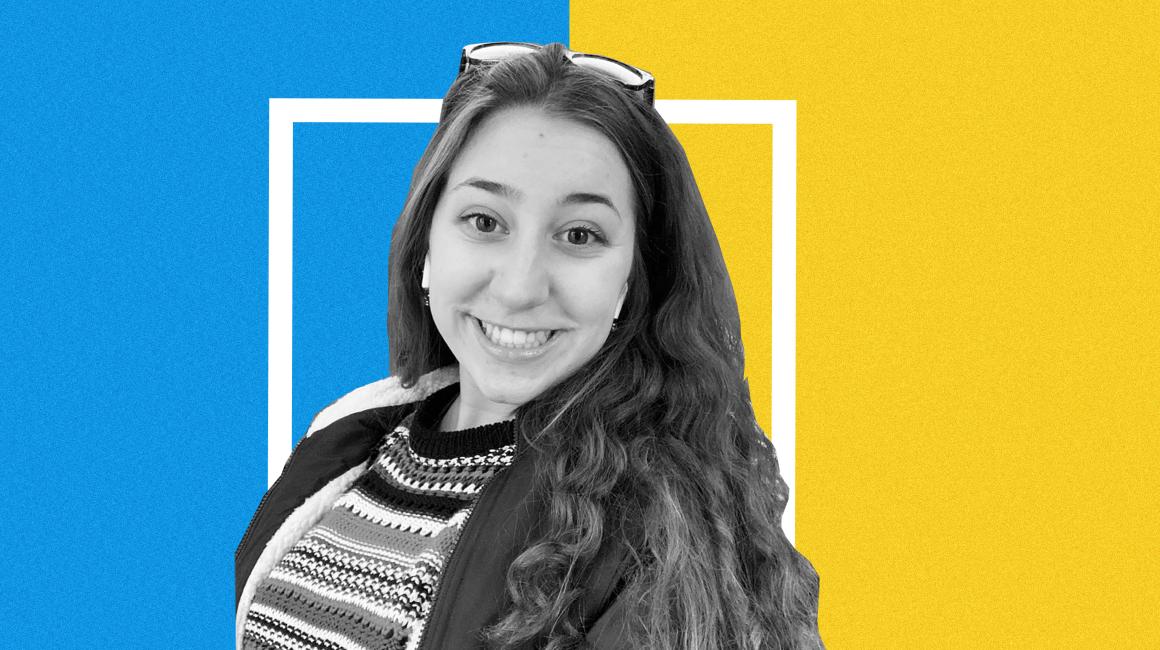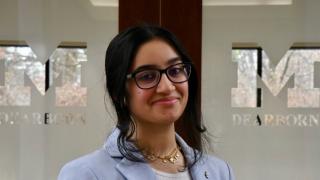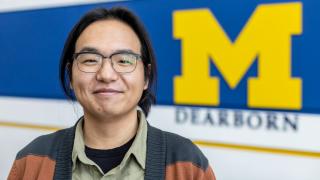
Some moments are so shocking that they create a mental impression strong enough to remember minute details that would otherwise be forgotten. That’s why people may recall their precise location when hearing the news of President John F. Kennedy’s assassination or have a vivid memory of the weather on Sept. 11, 2001.
“Flashbulb memories are created when people have a high-level of emotion when experiencing a surprising event or hearing shocking news that leads to vivid and long-lasting memories,” said Behavioral and Biological Sciences major Bella Martincic, a junior who works in Psychology Associate Professor Arlo Clark-Foos' Human Learning and Creativity (HuLC) Lab.
So did the news related to COVID-19 — and more precisely, when people learned of the pandemic-related shutdowns — create flashbulb memories? And, if it did, were their other factors that increased the cognitive impression?
In Martincic’s research, which she presented during the CASL Sargon Partners Undergraduate Research Showcase, she explored these questions through a nationwide survey the HuLC Lab created and sent out in May 2020. She’s spent the past year sorting and cataloguing the responses. She said hundreds of surveys were received and they represent a diverse range of ages, religions, cultural backgrounds, political affiliation and more.
“News regarding the pandemic was gradual in a sense because news regarding the virus kept trickling in before impacting the majority of people in the U.S. So the pandemic wasn’t a sudden shocking event in the same way Sept. 11 was. So I was curious if people even created flashbulb memories,” said Martincic, whose project adviser is Clark-Foos. “Data suggests that yes, people did create flashbulb memories — especially around state shutdowns. People could remember where they were, what they were doing, and what time of day it was when they heard the news.”
While looking for correlations in responses, Martincic noted something else interesting — political affiliation played a role in memory impression.
“I wanted to keep an eye on political affiliation because 2020 was a turbulent, polarizing year when it came to politics in our country. I was curious if political affiliation had any connection to pandemic-related flashbulb memories,” she said. Martincic said data shows people who indicate they vote Republican have the most specific memories of the pandemic and COVID shutdown, reporting details of where they were and the date they heard the news in their written responses.
Other politically tied discoveries? People who vote Independent have the longest memories, meaning they have the highest word count when recalling the March 2020 news.
Martincic said since emotional responses create flashbulb memories, one hypothesis on why some politically affiliated groups recalled more detail could be tied to more intense feelings toward social distancing, mask wearing or how the government handled the pandemic. Martincic said more research needs to be done before definitive conclusions can be reached.
However, the research does tell her that the effects of the pandemic will be felt long after the virus is under control.
“Even when we move past the pandemic, we are not going to be able to leave COVID in the past as much as we think. Many people created these flashbulb memories so they aren’t going to forget their experience anytime soon. It’s important to understand how people remember the pandemic and any influencing factors because these may have an impact on how local, state and federal governments respond in future emergencies.”
And there’s something else she’s discovered: What she’d like to do following graduation.
Starting as a research assistant in Clark-Foo’s HuLC Lab her sophomore year, Martincic said the opportunity was intended to be a resume builder. Instead, it was an eye-opener. She’d like to pursue a graduate degree and continue conducting psychology research.
“I love learning about people. It’s amazing how differently people view the world and it’s a privilege to work on a project that gives insight into this,” Martincic said. “Dr. Arlo (Clark-Foos) is a great mentor. This was my first time doing research and I want to do more. While learning what others had experienced, I also got the chance to learn more about myself.”
Interview by Sarah Tuxbury.


